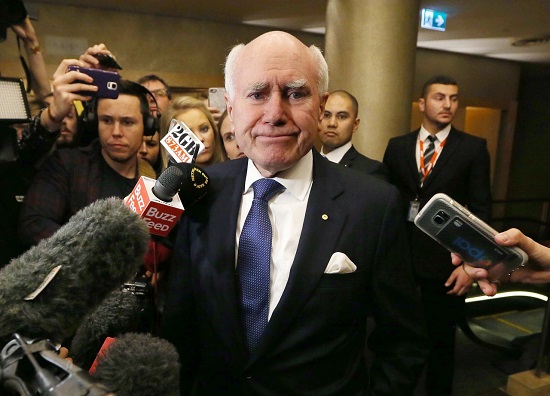
In a waiting room, having nothing better to do than read news items on my phone, this one appeared:
- Australian business leaders expect nearly a third of their workforce will be temporary workers within four years’ time.
Indeed most of them (90 per cent) are already hiring contractors from online job platforms like Freelancer and Airtasker.
But pivoting towards the gig economy also brings along teething problems.
According to a global survey of business leaders by recruitment firm Robert Half, the biggest concern about hiring contractors is that there is no guarantee of the standard of work (41 per cent).
Second on the list of employers’ concerns is a lack of an alignment or understanding of the company (38 per cent), and concerns over contractors’ eligibility to work (37 per cent).
Employers also feel unclear about expectations of contractors’ service (28 per cent), and some hold the perception that contractors are only freelancing because they can’t find a permanent job (28 per cent).
We have just had our NBN installed. In the lead up, all the calls were from our provider, which happens to be Telstra. While the technician was working, and we chatted as you do, I asked him who he worked for. As I suspected, it was neither Telstra nor NBN. However, he works on nothing but cables for the NBN and Telstra. He’s been doing it for decades, first for Telstra as an employee, then when he was made redundant, he started the very next week with a private firm doing exactly the same work for Telstra.
So he joined the gig economy where now he gets paid piece-work rather than a wage, at not bad rates – $97 per installation, which takes 15 minutes on the Telstra jobs, and about an hour on average on NBN work.
He said he did not know until he got up each morning what his jobs for the day were. Yesterday morning he had three. We were third, and he arrived about midday. He said you can live quite nicely on three, finishing work and home early in the afternoon after travel time. However, during the morning he had been offered two more, of which he had taken one.
Apparently, he’s programmed by a bot.
So I asked him, how come Telstra could tell me a week ago a technician would come. There must be spare capacity in the system. He said no.
So I said, that means sometimes there would be a no-show. Absolutely correct, he said.
But it went further than that. He said some people do eight or more installations per day. I suggested they may be cutting corners or doing sloppy work.
Correct again. There is an audit, but it’s only a small percentage, and some are willing to take the risk.
Prior to his coming, my wife had bought and installed a new power board to rationalise and tidy the forest of cords and wires, screwing it onto the wall and sorting everything out, as she does. Somehow that made us lose our local wifi.
It was beyond the technician’s brief to look at what was wrong, his brief was to see that the signal reached the modem and that the modem was working, which he tested with his $8,000 machine. Nevertheless, he was a helpful chappie, and agreed to take a look. Turns out there was an off button on the back of the modem, which my wife had accidentally turned off in moving the modem. Then he told a story of a woman who had been visited by techs four times without having a problem fixed. Finally, a tech came who actually looked at the back of the modem where he found a cable in the wrong slot. He had an endless fund of similar stories.
Before he left I asked whether we could contact him if subsequently there were problems. Of course the answer was “no”. We need to contact Telstra, who would contact the NBN, who would contact one of the firms they had on their books. All handled by bots.
As I posted in December 2017, It’s all John Howard’s fault.
There I summarised Mike Seccombe’s brilliant article on the topic in the Saturday Paper.

- When we think of worst prime ministers, the completely useless Bill (Sir William) McMahon comes to mind, followed by the negative, sloganeering bully Tony Abbott. However, if you are looking for a PM who did actual damage to the country’s economic and social fabric it’s hard to go past John Winston Howard.
Seccombe said:
- Examine almost any contemporary political problem, from Australia’s growing economic inequality to the declining performance of our school students relative to the rest of the world, to our dying coral reefs, and you will find the fingerprints of John Winston Howard.
He said that Howard was the most right-wing PM we’ve had, and was very effective in a negative sense. I gave his list of reasons, finally:
- he tipped the balance in industrial relations in favour of the bosses. In a way it was emblematic of how Howard saw human nature and the human condition. Every person was a business centre, responsible for their own future, capable of transacting to their benefit with all other business entities. The gig economy became embedded in our work culture, making it difficult for people to construct a life.
However, I suspect history will tell that Howard is about to lose his crown to the prime minister the Australian people have just elected, the inimitable ScoMo – Scott Morrison. Correction, it was actually Queensland who inflicted him on the rest of the country as well as on themselves. Leaving aside Queensland, Labor under Shorten had a handsome victory: 62 out of 121 seats, to the LNP’s 54. Being taken for suckers by Clive Palmer is no excuse.
For that I am deeply sorry.

You must not blame your fellow Queenslanders, Brian. There were plenty of seats up for grabs in other States.
There was a path for Labor victory, however narrow, that ran through Tassie, Victoria, and States to the west of Victoria.
And what about those voters lurking immediately to the south of Queensland? How did they help??
We in Victoria, having delivered a landslide to Mr Andrews, were supposedly going to swing across to Mr Shorten. Nup.
Tassie went backwards: do you hear Taswegians being excoriated? That State brought in Jaquie.
Victoria had the Motor Enthusiasts, or whatever that little grouplet was called. Ricky the Senator, good bloke.
Your Qld is not the sole exponent of tiny independents and wild political swings.
As a Victorian, I would like to offer:
* our Bill was not liked (to me he seemed sulky and droning, for six long years, when he wasn’t wooden or hectoring)
* it was foolish for Bill to go on a national “victory lap” in 2016 after losing that election
* whether they should have or not, the retired superannuants made sure to vote
* Adani
* news gets around, Bill: if you say different things in different electorates, even a lazy journalist will notice. That’s not “gotcha sh*t”, it’s elementary trustworthiness and avoiding hypocrisy.
* Mr Morrison was a tireless campaigner, in marked contrast to the languid and lordly Mr Turnbull
* Bill was tireless too
And in news just in, the percentage of voters who cast a ballot this time was apparently in the low seventies nationally*. I heard a chap say, that younger voters stayed away in droves (and he surmised many of them would have made the effort to enrol, when stirred up to vote in the marriage plebiscite).
Bill can become a miserable ghost if he wishes, mumbling about the corporate leviathans ranged against him. His life, his choice. Labor can do better than wallow, I think.
* so in some seats, the percentage was lower than 70%.
Looks like we are heading downwards towards US voting proportions, despite voting being compulsory here.
Golly!
I spent the last 5 yrs of my working life in the gig economy. For me at this stage of life it was a good deal for the following reasons:
1. The earnings were about increasing my reserves for post retirement.
2. The mining boom was in full swing and there were lots of jobs that needed people like me.
3. The hourly wage was about twice what I would have got as a permanent employee.
4. I could say I wasn’t available when we wanted to go on long overseas trips..
5. I was put on the books as a casual employee so I didn’t have to have professional indemnity.
6. I didn’t have a problem of only getting a few hrs per day. Ended up saying i would take the job on condition daily hrs were limited to 10/day. (But did agree to work more during a crisis.)
The downside for someone who needs the money is that the casuals are the first to go and the pay rate drops when the boom is over.
John D, the gig economy clearly suits the tech who installed our NBN too, but I wonder how things will go when the NBN roll-out is finished.
One of the basic issues is that there is less commitment from either side, and the relationship is likely to be based on exploitation. From the employees side it is harder to build a life, get a loan from a bank to put the roof over your head, to plan a family etc.
Ambi, interesting to get your views, but the Victorians were already doing their bit with 21 Labor, 15 LNP, 1 Green and 1 independent. Leaving aside Qld, where in 2016 the LNP had 21, Labor 9 plus Katter, Shorten already won the election in 2016. In 2019 he added one in NSW and lost 2 in Tasmania, and again won comfortably. The narrative should be why the forces of darkness failed to make inroads in the rest of Australia, and a separate narrative for Qld.
Then Qld in far from uniform. You need to make at least four separate narratives to account for what happened here. When the final count is in, I might have a go.
Brian: The gig economy has been with us for a long long time. Think construction industry, shearers, fruit pickers, casual rural workers, the people who man big concerts and young people who used to “work their way around Australia” as one of the rites of growing up.
Having said that I do think the gig economy is being expanded into areas that used to offer permanent work (like working in a restaurant.) In addition we have governments that are less interested in maintaining the penalty rates for overtime and casual work and generally improving job security.
We also as a nation are not very good at sharing the available work.
We really did need a dose of Bill Shorten as prime minister. I believe he really did want to make things better for the workers.
John, no disagreement there, but I believe we have one of the highest rates of casualisation in the OECD. At present rates and in it’s current form I suspect it has become a distinct negative for our society.
Brian: Our society has a real problem because, for far too many people, casualisation has become the only option and, worse still, casualisation is becoming the only option for jobs where it is not necessary.
If nothing else, casual work penalties need to be increased and enforced.